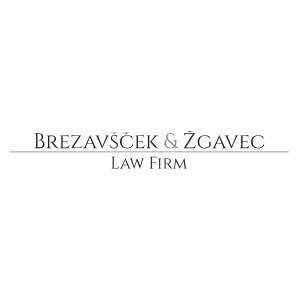Best Bankruptcy Lawyers in Ljubljana
Share your needs with us, get contacted by law firms.
Free. Takes 2 min.
List of the best lawyers in Ljubljana, Slovenia
About Bankruptcy Law in Ljubljana, Slovenia
Bankruptcy law in Ljubljana, Slovenia, primarily governs the processes through which individuals and companies who cannot meet their financial obligations are assisted. The law aims to ensure fair treatment for creditors while offering a path for debtors to address insolvency issues, whether through restructuring or liquidation. The process is overseen by the Slovenian courts, which ensure compliance with the legal framework defined primarily in the Financial Operations, Insolvency Proceedings and Compulsory Dissolution Act (ZFPPIPP).
Why You May Need a Lawyer
Legal assistance in bankruptcy matters can be crucial in several situations. People may require legal help when:
- Experiencing personal financial distress leading to potential insolvency.
- Managing a business that is unable to meet financial obligations.
- Dealing with creditor harassment or the threat of asset seizure.
- Requiring negotiation of debts or restructuring of financial obligations.
- Needing to understand complex legal requirements and documentation during bankruptcy proceedings.
- Aiming to seek advice on the best strategic approach to insolvency.
Local Laws Overview
The key aspects of bankruptcy laws relevant in Ljubljana include:
- The mandatory commencement of insolvency proceedings when certain financial criteria are met.
- Emphasis on initial voluntary settlements to avoid complete liquidation.
- A hierarchy of claims that prioritize specific creditors during asset distribution.
- The role of the court-appointed insolvency administrator in managing proceedings.
- Legal protections and exemptions designed to safeguard essential assets for individuals.
- Options available for reorganization, asset liquidation, or compulsory settlement agreements.
Frequently Asked Questions
1. What is the first step in filing for bankruptcy in Slovenia?
The first step involves assessing your financial situation and determining eligibility under the insolvency criteria set by Slovenian law. It is advisable to consult with a lawyer to initiate proceedings.
2. How long does the bankruptcy process usually take in Ljubljana?
The duration varies based on complexity. Pre-bankruptcy settlements may be concluded faster, while full bankruptcy proceedings, including asset liquidation, can take several months to years.
3. Can I keep any assets if I declare bankruptcy?
Yes, certain assets are exempt from liquidation, including necessary personal items which may vary under specific circumstances.
4. What happens to my debts after declaring bankruptcy?
Post-declaration, your debts will be assessed and potentially discharged, reduced, or restructured based on the insolvency plan approved by the court and administrators.
5. Are there alternatives to bankruptcy in Slovenia?
Yes, alternatives such as voluntary settlements or restructuring negotiations with creditors are often explored before formal bankruptcy proceedings.
6. Will declaring bankruptcy affect my credit rating in Slovenia?
Yes, bankruptcy will impact your credit rating, potentially hindering future access to credit. Consulting with a financial advisor can help you understand and mitigate the effects.
7. Is it possible to reverse bankruptcy proceedings once they start?
There are rare instances where proceedings can be halted, usually through successful settlements or payment of overdue amounts. Legal counsel can provide specific guidance.
8. What role does a trustee play in my bankruptcy case?
A trustee, often referred to as an insolvency administrator, manages your assets, oversees proceedings, and ensures all legal protocols are followed in asset liquidation or settlements.
9. How are debts prioritized in a bankruptcy case?
Debts are prioritized with secured creditors being paid first, followed by unsecured creditors, based on a legal order established under Slovenian insolvency laws.
10. Will bankruptcy discharge all types of debts?
Not all debts may be discharged, such as certain taxes, fines, and obligations like child support payments may remain enforceable.
Additional Resources
Several resources can provide further guidance, including:
- The Slovenian Supreme Court, which offers details on procedural matters.
- The Ljubljana Court of Justice for local jurisdiction specifics.
- Financial consultants specializing in insolvency and restructuring services.
- Non-profit organizations offering support and financial counseling to those affected by bankruptcy.
Next Steps
If you need legal assistance in bankruptcy matters, consider the following steps:
- Consult with a licensed bankruptcy attorney in Ljubljana who has experience in insolvency law.
- Gather all relevant financial documents, statements, and creditor communications.
- Discuss your situation openly with your legal advisor to explore both formal and informal solutions.
- Prepare for meetings with creditors, ensuring you understand proposed terms and potential impacts.
- Consider attending informational sessions or seminars on bankruptcy hosted by financial literacy organizations in Slovenia.
Lawzana helps you find the best lawyers and law firms in Ljubljana through a curated and pre-screened list of qualified legal professionals. Our platform offers rankings and detailed profiles of attorneys and law firms, allowing you to compare based on practice areas, including Bankruptcy, experience, and client feedback.
Each profile includes a description of the firm's areas of practice, client reviews, team members and partners, year of establishment, spoken languages, office locations, contact information, social media presence, and any published articles or resources. Most firms on our platform speak English and are experienced in both local and international legal matters.
Get a quote from top-rated law firms in Ljubljana, Slovenia — quickly, securely, and without unnecessary hassle.
Disclaimer:
The information provided on this page is for general informational purposes only and does not constitute legal advice. While we strive to ensure the accuracy and relevance of the content, legal information may change over time, and interpretations of the law can vary. You should always consult with a qualified legal professional for advice specific to your situation.
We disclaim all liability for actions taken or not taken based on the content of this page. If you believe any information is incorrect or outdated, please contact us, and we will review and update it where appropriate.














